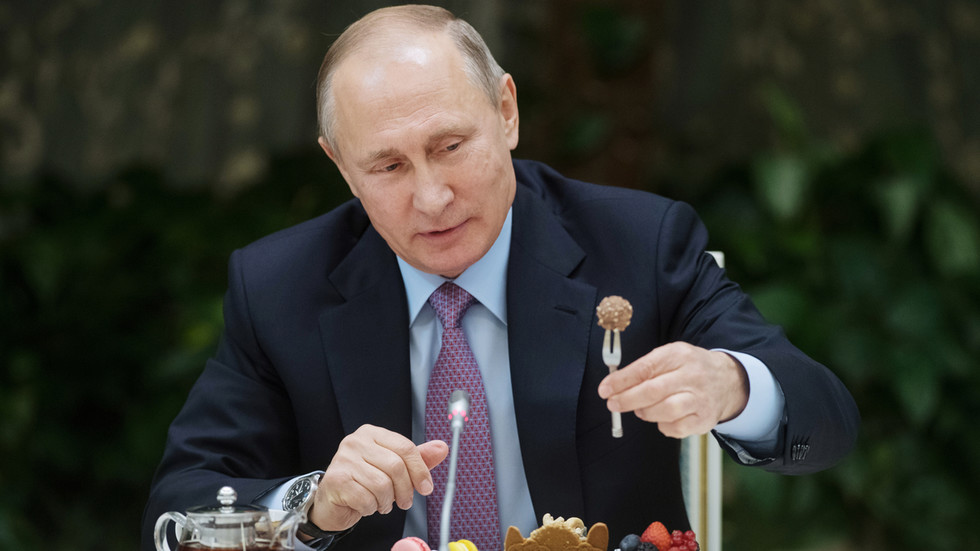World·Preview
With the prosecution in Donald Trump's criminal trial hinting it might rest its case within days, it's about to call upon Michael Cohen — the man who went from being the former U.S. president's closest consigliere to his arch adversary.
Cohen's memoir offers preview into what he's expected to say in court

Alexander Panetta · CBC News
· Posted: May 12, 2024 9:16 PM EDT | Last Updated: 3 minutes ago
Donald Trump's criminal trial has just heard its most salacious testimony. Now, with the trial nearing a conclusion, it will hear its most substantive.
With the prosecution hinting it might rest its case within days, it's about to call upon a man who went from being the former U.S. president's closest consigliere to his arch adversary.
It expects Michael Cohen to bolster the three pillars of its case: that Trump personally arranged hush-money payments to last week's witness, his paramour Stormy Daniels; that Trump was intentionally deceitful, attempting to cover it up; and that Trump did this to get elected to the White House.
We already know what Cohen will likely say when he's called to the witness stand as early as Monday. Because he's written it down.
Trump's former lawyer and personal counsel wrote his memoir from prison that charted the quasi-operatic collapse of their relationship, a falling-out so severe that his book starts with Cohen opining that Trump probably wishes he were assassinated.
"The President of the United States wanted me dead," Cohen writes in his memoir, Disloyal, in reaction to Trump's public references to Cohen as "a rat," an informant, starting in 2018.
"Or, let me say it the way Donald Trump would: He wouldn't mind if I were dead. That was how Trump talked. Like a mob boss, using language carefully calibrated to convey his desires ... [but] to insulate himself."
Back where it all started
In that courtroom, they will meet again for the first time in years. Back in the very town where they originally met, in 2006: their home of New York City.
Cohen was enamoured with Trump. He'd read his book The Art of the Deal — twice. He deemed it a masterpiece, a term the book's actual ghostwriter wouldn't use.
Cohen was a graduate of what he's called perhaps the least-prestigious law school in America and made most of his income in the taxi business.
"I was incredulous, excited, overwhelmed," he said, describing the meeting where he, a tenant in one of Trump's buildings, was introduced by Donald Trump Jr. to his dad. "[He] was even larger in life than he appeared on television. His presence filled the room."
Trump needed a pit bull, not sophisticated legal expertise, and Cohen eagerly fit the role. Trump was enraged that board members of the local Trump World Tower wanted his name stripped off as they feared it damaged the property's value.
Cohen advocated, and won, on Trump's behalf. And that was the beginning of a decade-long relationship. Cohen called Trump a paternal figure and said he wound up closer to Trump than anyone beyond his immediate family.
In retrospect, he says, Trump lied to him within seconds of their first meeting — an easily provable lie about a real estate valuation. In refusing to call him on it, Cohen says, he immediately set a pattern that would define their relationship.
Ultimately it was a lie he told for Trump that led to their undoing.
Prosecutors now allege that Cohen has insight into the events that led to several dozen Class E felony charges against Trump in New York State: 34 counts of falsifying business records, each punishable by up to four years in prison.
WATCH | Stormy Daniels details alleged sexual encounter with Donald Trump:
Stormy Daniels details alleged sexual encounter with Donald Trump at hush money trial
One lawyer interviewed last week by CBC News doubts Trump would get any prison sentence at all, a dominant view among lawyers who have weighed in on the case.
"No," said former federal prosecutor Gene Rossi. "If he got convicted of all 34 counts, he may get six years of probation. He won't go to jail.
That said, he expects a conviction.
Which means the likeliest damage to Trump, if any, is political, related to this year's presidential election. In several polls, his support drops when potential voters are asked what they'd do if Trump were found guilty of a crime.
One former prosecutor who criticizes the case surmises that this is the only point — to smear Trump before the electorate.
"The case is a political hit job," Andy McCarthy, a Republican, conservative commentator and longtime federal prosecutor in New York, said on his podcast, The McCarthy Report. "The objective here is [help] Biden to be able to call Trump a convicted felon from now until election day."
Flawed narrator gets a chance to speak
The jury will get to decide, first, how valid this case is. A verdict could come within a couple of weeks, depending on how many defence witnesses get called and the duration of later procedures — such as discussions between the parties and the judge, and his instructions to the jury.
What Cohen will add are vivid personal accounts, beyond what's already illustrated by the paper trail of payments and the earlier testimony of more distant Trump acquaintances.
In his book, Cohen describes how he negotiated the $130,000 US payment to silence Stormy Daniels during the 2016 election campaign, then fumed after the election about being shortchanged by Trump, and finally crediting Trump with coming up with a masterstroke: disguising the refund to him — paid in 12 monthly cheques — as a legal expense, so that Trump could claim a tax deduction on it.
"Trump's maneuver was classic, gangster," Cohen wrote admiringly. "Trump was actually making money on the deal."
Their falling-out came after April 9, 2018, the day the FBI raided Cohen's house. Cohen wound up spending more than a year in prison, pleading guilty to numerous crimes involving the refund for the Daniels payments, tax fraud and lying under oath to the U.S. Congress.
He and Trump never spoke again after the day of the raid.
In his memoir, Cohen admits he's a flawed narrator. He will face a withering cross-examination, with past witnesses already trashing his personality — and the prosecution has even warned jurors that key witnesses have credibility issues.
But unsavoury witnesses, Cohen wrote, still have their purpose.
"If you want to know how the mob really works, you've got to talk to the bad guys," he wrote. "I was one of Trump's bad guys."
ABOUT THE AUTHOR

Alexander Panetta is a Washington-based correspondent for CBC News who has covered American politics and Canada-U.S. issues since 2013. He previously worked in Ottawa, Quebec City and internationally, reporting on politics, conflict, disaster and the Montreal Expos.

 5 months ago
45
5 months ago
45









